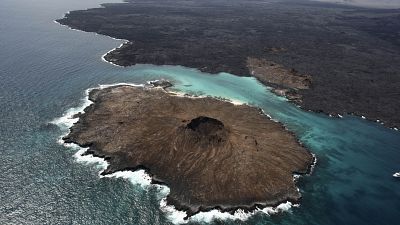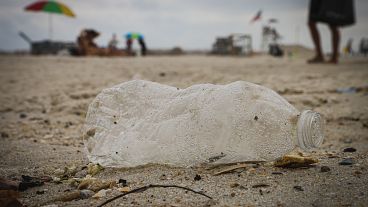Sustainable travel doesn't automatically equate to expense. We explore the options.
BREAKING: Sustainable travel on a budget is possible, and it doesn’t have to involve tents, hitchhiking or being eaten alive by mosquitos.
Yes, eco-lodges in the south of Portugal and yoga retreats in Costa Rica can be sustainable - but your trip doesn’t have to come at a cost.
Luxurious ‘eco travel’ is fantastic, but only affordable to a few. It’s not always a viable option if we want the concept of sustainable travel to become the new normal.
Now, arguably the best option to improve your carbon footprint is not travelling at all. But we understand - it’s not something many people are willing to give up.
Here are a number of things you can do to offset, or minimise, your carbon footprint when you’re planning your next trip.
Bad news first? Well, flying is not good, especially short hauls
Planes burn a colossal amount of fuel, especially during take-off and landing.
A roundtrip flight from London to Madrid can create a warming effect equivalent to half a ton of carbon dioxide per person. That means getting to your destination is the dirtiest and biggest carbon chunk of your vacation.
So what can you do about it? Start by considering your options.
Generally speaking, you get more green points taking the train and driving (especially with more than one person in the car), an extra bonus if you use public transport, and a big yellow star for biking or walking.
But of course, sometimes flying is unavoidable. In those cases, try to reward airlines using or experimenting with renewable biofuels, such as Lufthansa, KLM, and United Airlines.
Budget airlines are often a greener option too
The reason? They load more passengers into the same amount of space, meaning carbon dioxide emissions per passenger automatically decrease. Based on the same principle, flying coach rather than business class is also better for the planet.
Carbon offsets are a good way to strike a balance
Many airlines now give you the option to compensate for the environmental footprint of your flight by buying carbon offsets. These are credits that will be allocated to reduce carbon elsewhere, for example by planting trees.
Some environmentalists argue carbon offsets are problematic because they distract people from the real issue: notably, planes. But if flying is the only option, offsetting is still better than nothing.
Pack light
The heavier your luggage, the more fuel is needed to fly the plane. Even something like a laptop, multiplied by the number of passengers, affects the total weight of the aircraft.
Not to mention, when your luggage is lighter, you’re more likely to hop on public transport, which is greener than a solo ride in a taxi.
Take longer holidays
Since getting from one destination to the other is the biggest environmental toll, consider taking longer vacations, rather than multiple short breaks. This will also save you some money! Hotels and rental services often offer discounts if you stay longer.
Both lazy and sporty vacations are high on this chart. Think beaches, cycling, camping and sailing.
What about hotels?
Eco accommodation does not equal a more expensive option than standard accommodation.
Don't give up on hotels with sustainable certifications. There are dozens of them, such as Green Globe and Green Leaders by Trip Advisor.
Some score better than others, but any kind of accreditation is better than none at all.
Reconsider the hostel - the category is making progress
Many hostels are just as good as hotels, and some even offer private rooms for cheaper prices.
Hostels have a fair sustainable reputation because they are naturally more attached and aligned with the community, meaning they are usually more respectful towards local resources.
How to choose where to go
Giving up the big destinations, or rethinking when you visit, is a good place to start.
Overtourism is bad for the environment because it depletes the region’s resources. On the bright side, by staying off the beaten track, you will most likely discover more authentic, cheaper and less crowded options.
A holiday strolling or biking around an exciting city such as Rome or Paris could also be a great way to have an environmentally friendly vacation.
But the best way to ecotravel remains the easiest (or not?): it’s called common sense
Common sense sounds obvious, but it’s worth repeating: take your own water bottle, everywhere.
If you can’t walk, bike.
If you can’t bike, public transport.
If you rent a car, request a small, fuel-efficient car.
Buy less plastic, or better: buy no plastic at all.
Eat and shop locally as much as possible. And if you don’t know where, just ask!



